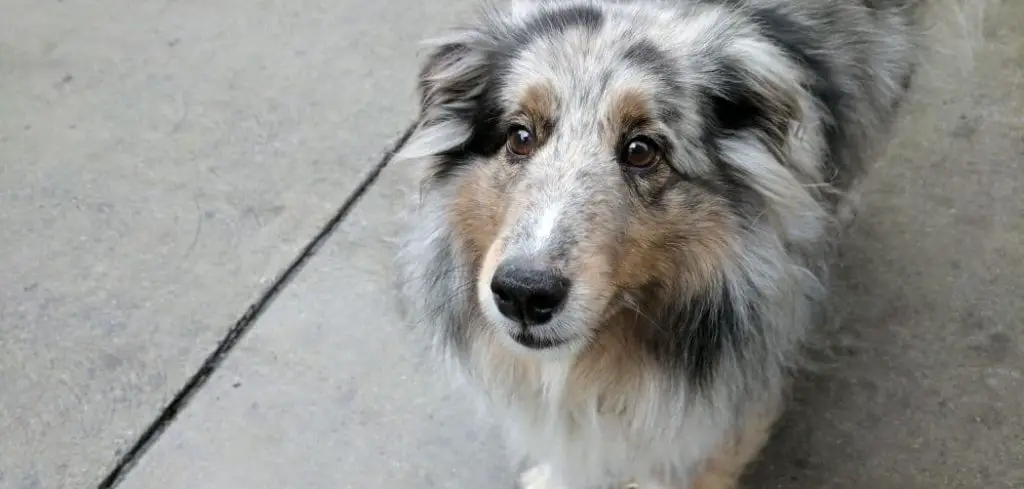It can be both amusing and concerning when your dog seems like a bottomless pit, constantly searching for its next bite.
But when this behavior crosses the line into excessive eating, it could indicate more than just a healthy appetite.
We outline the common causes of a dog excessively eating, what you can do at home, and when to seek veterinary help.
Dog Excessively Eating — Why It Happens
A dog excessively eating can be due to medical, behavioral, or environmental triggers. Conditions such as diabetes, Cushing’s disease, or intestinal parasites can all stimulate extreme hunger. Behavioral factors such as stress or poor feeding habits may also play a role.
Some medications increase appetite, and aging dogs may experience metabolic shifts.

Dog Excessively Eating: Common Causes
Diabetes Mellitus
Diabetes in dogs often leads to a condition called polyphagia — or excessive hunger.
The body is unable to use glucose properly, so despite eating, your dog feels starved of energy.
You may also notice increased thirst and urination alongside rapid weight loss.
This is a serious condition that needs lifelong management and insulin therapy. Left untreated, diabetes can result in organ damage and life-threatening complications.
Read more: Dog Excessively Hungry (Here’s Why)
Cushing’s Disease
Cushing’s disease (hyperadrenocorticism) is a hormonal disorder caused by an overproduction of cortisol.
This hormone imbalance can lead to ravenous hunger, weight gain, increased thirst, and a pot-bellied appearance.
Dogs may also experience hair loss and thinning skin.
If your dog is eating a lot more but also showing these other signs, it’s worth discussing Cushing’s with your vet.
Intestinal Parasites
Certain parasites, like roundworms or hookworms, can deprive your dog of nutrients.
In response, they eat excessively to compensate, but may still lose weight or have a bloated belly.
Puppies are especially vulnerable to parasites and may even vomit worms.
Regular deworming and fecal tests are critical for prevention and early detection.
Behavioral or Learned Habits
Some dogs develop habits of overeating due to inconsistent feeding routines or reinforcement of begging behavior.
Dogs that experienced food scarcity early in life may hoard or overeat even when food is now plentiful.
Stress, anxiety, and boredom can also prompt a dog to eat more in an attempt to self-soothe.
While not medical, these issues still require active management through training and enrichment.
Medication Side Effects
Drugs like corticosteroids (e.g., prednisone) are known to increase appetite dramatically.
If your dog starts eating excessively soon after beginning a new medication, consult your vet.
It may be possible to adjust the dosage or switch to a different treatment with fewer side effects.
Always monitor changes in appetite when your dog starts a new medication.
Aging and Cognitive Changes
Senior dogs may exhibit excessive eating due to changes in their metabolism or brain function.
Some may forget they’ve already eaten or lose their sense of fullness.
Cognitive dysfunction syndrome (similar to dementia) can cause repetitive behaviors, including constant food seeking.
Your vet can assess whether age-related changes are behind the appetite surge and offer supportive strategies.
What to Do If Your Dog Is Excessively Eating
If your dog suddenly starts eating much more than usual, begin by monitoring their overall behavior and energy levels.
Keep a log of how much food they consume, any treats, and when they seem the hungriest.
Ensure they’re getting a balanced diet appropriate for their age, breed, and activity level.
Remove temptations like open trash cans or food left on counters, and use slow feeders to encourage calm eating.
Interactive feeders or food puzzles can help reduce gulping and provide mental stimulation.
If boredom or anxiety seems to be a factor, add more exercise and playtime to their routine.
Avoid free-feeding and stick to scheduled meal times so you can track how much your dog eats each day.
When to Call or Visit Your Vet
If your dog’s excessive eating is sudden, persistent, or accompanied by other symptoms, veterinary evaluation is essential.
Contact your vet promptly if you notice:
Rapid or unexplained weight loss or gain
Excessive thirst and urination
Vomiting, diarrhea, or signs of abdominal discomfort
Behavioral changes like pacing, whining, or anxiety
Food stealing or eating inedible items (pica)
These could be signs of underlying diseases that require prompt diagnosis and treatment.
Don’t delay veterinary care if your dog’s appetite seems uncontrollable or paired with other worrisome symptoms.
Read more: Dog Excessively Eating Poop (What it really means)
Key Takeaway
Excessive eating in dogs might seem harmless at first, but it’s often a symptom of a deeper issue.
Whether driven by illness, stress, or medication, your dog’s constant hunger deserves attention.
Start by observing their habits closely, and don’t hesitate to speak to your vet for guidance.
With the right approach, you can identify the cause and restore healthy eating habits for your dog’s well-being.
